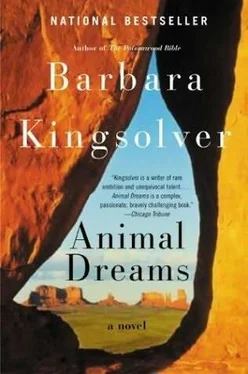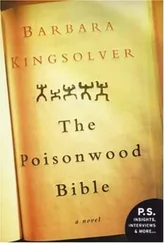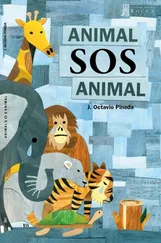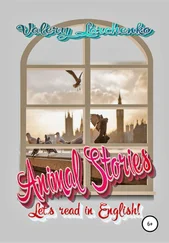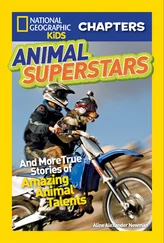Magazines and journals were everywhere. His American Journal of Genetics was still organized chronologically on the shelf. That was his pet interest; they’d once published his article on the greatly inbred gene pool of Grace, with its marble-eyed babies. (He’d even rigged up a system for photographing the newborns’ eyes, for documentation.) The trait first began showing up in the fifties, when third-cousin descendants of the Gracela sisters started marrying each other. Emelina would have been one of his subjects. You needed to get the gene from both sides; it was recessive. That’s about what I knew. For me it was enough to understand that everyone in Grace was somehow related except us Nolines, the fish out of water. Our gene pool was back in Illinois.
Other magazines, many in number, were piled on the floor. I picked up a Lancet: 1977, my first year of med school. There was an important article on diabetes I remembered. Underneath, a recent National Geographic. There was no order at all. Though if I mentioned it he’d come up with some elaborate rationale before he’d admit to disorganization. South Sea Islands and Islets of Langerhans, I could see him saying, and not meaning it as a joke. The smell of mold was making my eyes water. I was inclined toward the stairs, to go up and see what kind of shape the bedrooms were in, but I didn’t have the heart. It wasn’t my house. I forced my hand to knock on the darkroom door.
“Open. I’m about to start printing.”
I closed the door behind me. There was only a dim red light bulb. “Hi, Pop,” I said.
He looked at me, unsurprised and not very much changed, I could see as my eyes adjusted. I was prepared for frailty and incoherence but he was lucid and familiar. The same substantial hands and wrist bones, the straight nose and low, broad mouth-things I also have, without noticing much. He motioned for me to sit.
“So how are you these days?” I asked.
He ignored the question. We hadn’t been together since the Holiday Inn lounge, two years ago, but from Doc Homer you didn’t expect hugs and kisses. He was legendary in this regard. Hallie and I used to play a game we called “orphans” when we were with him in a crowd: “Who in this room is our true father or mother? Which is the one grownup here that loves us?” We’d watch for a sign-a solicitous glance, a compliment, someone who might even kneel down and straighten Hallie’s hair ribbon, which we’d tugged out of alignment as bait. That person would never be Doc Homer. Proving to us, of course, that he wasn’t the one grownup there who loved us.
I sat carefully on a cool file cabinet. He was adjusting black knobs on the enlarger, preparing to make a print. When he switched on the bulb an image appeared against the wall, in reverse: white trees, black sky, mottled foreground. I’d learned how to look at negatives many years before I read my first X-ray. He shrank the frame into focus, shut it off while he slid a rectangle of paper into place and set the timer, and then projected the picture again, burning it into the paper. In the center were two old men hunched on a stone wall, backs to the camera.
“They look like rocks,” I said. “It’s hard to see where the wall ends and the men start.”
“Men who look like stones,” said Doc Homer. His speech was more formal than most people’s writing. Who else would really say “stones”?
“Except for the hat,” I said. “That hat’s a giveaway.”
“I’m taking it out.” He held a small steel spatula into the beam of light and waved little circles over the area of the man’s hat, as if he were rubbing it out, which is exactly what he was doing. Photographers call this “dodging,” and the spatula was a “dodging tool,” though in all probability this one was something used in gallbladder surgery. When I was little I called it the Magic Wand.
The timer rang and he shut the projector off. I looked at his face in profile in the faint red light. Deep lines ran from his nose to the corners of his mouth. He didn’t look well, but maybe he never had. He picked up the print by its edges.
“You haven’t heard anything from Hallie, have you?”
He shook his head.
“You’re sure you don’t want me to tell her you’ve got, that you’re sick? I’m sorry to bring this up, but it’s hard to be the only one. I think she’d want to know.”
He appeared not to have heard me. I knew he had. Doc Homer never argued, he just didn’t participate in conversation that didn’t please him.
“So did the man’s hat go away?” I asked.
He slipped the paper into a dishpan of clear liquid. “We’ll see.” He seemed suddenly happy now, almost friendly, as he often did in here. The darkroom was the nearest I’d ever come to feeling like I had a dad. We stood without talking and watched a gray image grow on the paper like some fungus with a mind of its own. I thought about the complex chemistry of vision, remembering from medical school the textbook diagrams of an image projected through the eyeball, temporarily inscribed on the retina.
“I never thought about how printing a photograph duplicates eyesight,” I said. “It’s the same exact process in slow motion.”
He nodded appreciatively and my heart warmed. I’d pleased him. “Probably there is no real invention in the modern world,” he said. “Just a good deal of elaboration on nature.” He lifted out the slick print and slipped it into a second tray, the fixer.
“The stone has no head,” he pronounced, correctly; it looked like a rock wall with two extra rocks balanced on top. You’d think it was just a simple snapshot of what it looked like. His finest art defeated itself. God only knows what was the point, but it made him smile. When the timer rang again he took the photograph out and slid it into its final bath. He fished out several other prints and attached them with small clothespins to a wire. Then he dried his hands on a towel, one finger at a time. These gestures made me think of all the years he’d spent alone, doing his own dishes, his laundry.
I felt our visit drawing to a close, like a scientifically predicted death. We would go out into the light, find a little more to say, and then I’d go.
“There’s a pie for you in the kitchen,” I said. “From Uda. Who is she?”
“Uda Ruth Dell,” he said, as though that explained it.
“I mean, what is she to me? Did I use to know her?”
“Not especially,” said Doc Homer, still studying the photographs. “No better than you knew anyone else.”
“She knows all about me, and then some,” I said. “She probably knows what I had for lunch.”
“You’re in Grace,” he said.
“Well, I was embarrassed because I couldn’t remember her. She wasn’t very helpful. She just stood there waiting for me to rack my brain and come up with her name. She sure knew me right off the bat.”
Doc Homer didn’t care for expressions like “right off the bat.” He switched off the red light before opening the darkroom door, passing us through a moment of absolute darkness. He knew, but refused to accept, that I was afraid of the dark. The click and blackness plunged me into panic and I grabbed his upper arm. Surprisingly, he touched my knuckles lightly with his fingertips.
“You’re in Grace,” he said again, as if nothing had happened. “There is only one of you for all these people to be watching for. And so many of them for you.”
I’d lived all my life with a recurring nightmare. It would come to me in that drowsy twilight where sleep pulls on your mind with tempting music but is still preventable. When I let down my guard the dream would spring again, sending me back into weeks of insomnia. It had to do with losing my eyesight. It wasn’t a complicated dream, like a movie, but a single, paralyzing freeze frame: there’s a shattering pop, like glass breaking, and then I am blind.
Читать дальше
